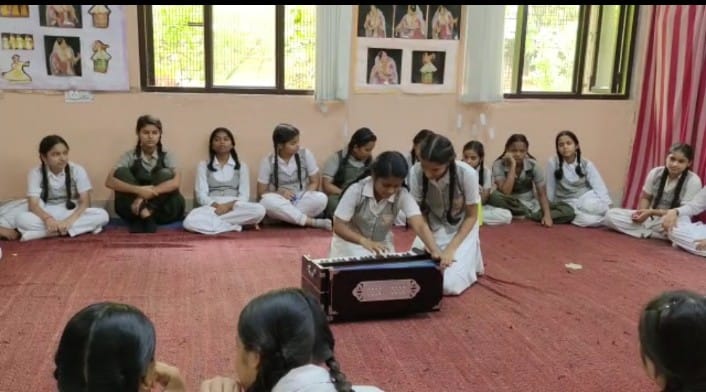
Melodies of Wisdom: Exploring the Resonance of Music in Education
Written by Dr. Priya Laxmi and Murari Jha
Music is the language of the soul, and perhaps when there was no language there was music. And Perhaps, where there is no language there is music. When passing by a river, what do you hear: the flowing river producing music or language? On several occasions, we realize the limitations of the language we use, and in such situations, what works can perhaps be referred to as music. Inspired by the magic that music creates, the popular Greek philosopher Plato strongly argued for its integration into the school curriculum back in the 5th century BC. Plato believed that music had a profound impact on the character and soul of individuals.
In the modern education system, at least in principles, we have acknowledged its value and its role in the learning process. But it faces some ironies. People often think, and they ask, whether everybody can learn music, stating that it is only for gifted children and that artists are born, not made. Maybe the purpose of music education is to produce artists or serve as a career option. Like any other field, there appears to be a lot of misunderstanding about music education.

What is the purpose of teaching various subjects in education? How does one subject gain prominence over others? There are many subjects of specialization for the all-round development of a child, and evaluation is a process to note how much more effort is required to improve in a particular subject. I wonder how it happened that some subjects gained higher importance over others, while some subjects were neglected as least important or could be done without assigning proper time. To the extent that music teachers are popularly referred to as miscellaneous teachers. Can we understand this phenomenon without referring to the politics of education?
Music is one of the subjects in our education system believed to be a means of scoring marks with less effort, not something to be studied seriously. The stereotypical belief is that not everyone can be an artist, so why waste time on such a subject like performing arts? Instead, time should be utilized to study difficult subjects to secure better job options. While the opportunity to find a job has a direct connection to the subjects taught in schools, the field of music is also quite promising, and many successful people are musicians.
A child learns any academic subject for 12 years, or at least 10 years of their life, but we never expect that child to become a performer in that subject. In Bloom's taxonomy, art comes above science, so why are creative subjects seen as the least important? Art is linked with creativity, which comes after remembering, understanding, applying, analyzing, and evaluating. Isn't it ironic that we still believe that music is a subject of lesser importance? After 12 years of continuous education in a subject and scoring good marks, every child is not expected to create something new in that subject. In the current education system, no child has access to 12 years of music education. In fact, in some months of training, parents expect to see them as performers. In a few years of education in any subject, we can expect to remember, understand, and apply. It takes time to reach the level of creativity.
Literacy is given due importance in foundational education. Music is a universal language, and musicality can enhance the communicative power of any language, aiding with voice modulation and rhythm. Unfortunately, this subject is only restricted to cultural literacy in India and seen as performances on special occasions. Regular practice of musical instruments or vocal and dance is missing. In most other parts of the world, music education is accessible to all children and seen as a means of holistic development. Hopefully, with the NEP 2020, music education will get its due importance, acceptance, and implementation in true spirit. At the policy level, we have to address the ironies that music education is subjected to. Otherwise, in our obsession with education for livelihood, we are discounting education for life.
- Log in to post comments
